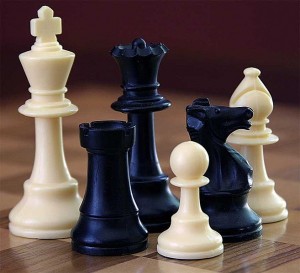 During the first half of the 19th century most Americans probably considered themselves highly civilized and morally upright compared to the native tribes – the “savages” – and yet they practiced slavery. After the emancipation they probably thought they had now become a more humane society – but their racial discrimination would still be considered barbaric by today’s standards. Today we may consider ourselves ethical, but there is a real possibility that in the future we shall also be called barbaric because of how we treat animals.
During the first half of the 19th century most Americans probably considered themselves highly civilized and morally upright compared to the native tribes – the “savages” – and yet they practiced slavery. After the emancipation they probably thought they had now become a more humane society – but their racial discrimination would still be considered barbaric by today’s standards. Today we may consider ourselves ethical, but there is a real possibility that in the future we shall also be called barbaric because of how we treat animals.
Morality has always something to do with how we relate to our fellow human beings (unless you consider masturbation a moral issue), and we are only as moral as how we treat others in relation to our society’s standards.
In chess, players are rated for their relative skills – meaning how good they are in comparison to the entire world pool of active competitors – using the Elo rating system. There is no absolute value for each four-digit rating; the figures merely show how good a player is compared to present competition.
For example, Mikhail Tal was World Champion in 1960–1961 but he got his peak Elo rating of 2705 in January 1980, which means his rating was even higher in 1980 but in spite of that he was no longer world champion. Today, an Elo rating of 2705 would only put Tal in 33rd place.
It has been argued that “due to increased knowledge of the game including the use of computers in preparation, the top players of today are simply better than the best players of ten, twenty or fifty years ago.” As levels of competition increase and game standards improve, the actual ratings decrease in relative value. What may be considered a high rating at a certain period may be called average a few decades later.
Going back to morality, I guess we can say that due to economic and intellectual progress the top moral societies of today are simply better than the top moral societies of ten, twenty or fifty years ago. And just as competitive standards in the world chess community would go down if a software virus or some electromagnetic pulse somehow destroyed all the chess programs and databases leaving chess players with nothing but talent and skill, moral standards are expected to deteriorate when a country is stricken with famine or natural calamity, and crimes such as stealing may not even be condemned as much especially if they were done in order to feed one’s starving children.
And this reminds me of Season 3 Episode 11 of Boston Legal where Alan Shore defends a New Orleans doctor who euthanized five patients because Hurricane Katrina flooded the hospital – cutting off power, drinking water, and medical supplies – and no help was coming. The following are the closing arguments of the assistant district attorney and Alan Shore:
Assistant District Attorney: This isn’t a complicated case. The defendant lethally injected five people, causing their deaths. Might they have died anyway? Maybe. So what? That doesn’t give this doctor the right to take the law and, more importantly, their lives into her hands. Physician-assisted suicide isn’t even lawful in this state. To kill a patient without his consent—do I really need to stand here and argue the illegality of that? And even should you be inclined to engage in the moral debate defense counsel would like you to, you have to apply the law as it stands today. And, as it stands today, when you knowingly, intentionally cause the death of another human being—that’s murder. No matter how bad things get, this is still the United States of America, not some third world nation, and we don’t permit people to kill other people. If we forgive that kind of lawlessness, if we tolerate that kind of anarchy, we cease being the United States of America.


Good points about animal cruely and chess (I’m a 2000+ Elo player myself), but very few people regard the United States a moral country. Apart from people from the United States, that is.
Morality should be concern for individual survival and his relationship with his fellow individual. Whatever the society's morality reflects its own dominant view of the world (philosophy).
Hooray to a fellow Boston Legal afficionado!